Regional/Local CES is the key approach for sustainable and resilient local/regional development with/after COVID-19. This session will discuss how we can demonstrate the CES approach at the local level by looking at actual cases – how the elements of decarbonisation, circular economy and harmony with nature, and decentralised society have been integrating thanks to partnerships among different stakeholders. Discussions also cover social and technical innovations that can facilitate the implementation of the CES approach at a local level.
President, IGES
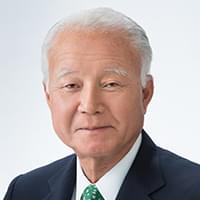
Kazuhiko Takeuchi
President, IGES
Kazuhiko TAKEUCHI graduated from the Department of Geography, the University of Tokyo in 1974. He obtained M.Agr. and Ph.D. from the Graduate School of Agriculture, the University of Tokyo. He served as a Professor at the Asian Natural Environmental Science Center, and as Professor at the Graduate School of Agricultural and Life Science at the University of Tokyo from 1997 to 2012. He also served as a Vice-Rector and Senior Vice-Rector at the United Nations University from 2008 to 2016.
From 2016, he has served as a Senior Visiting Professor at United Nations University Institute for the Advanced Study of Sustainability (UNU-IAS). He was Director and Professor/Project Professor of IR3S at the University of Tokyo from 2017 to 2019. He has served as President, Institute for Global Environmental Strategies (IGES) since July 2017. He took up the position as Project Professor of the Institute for Future Initiatives (IFI) at the University of Tokyo in April 2019. He has served, inter alia, as Chair of the Central Environmental Council, Government of Japan, Editor-in-Chief of the journal Sustainability Science (Springer Nature) and Distinguished Chair, Wangari Maathai Institute for Peace and Environmental Studies, University of Nairobi.
He specialises in landscape ecology, landscape planning, and sustainability science.
Mayor of Sado City
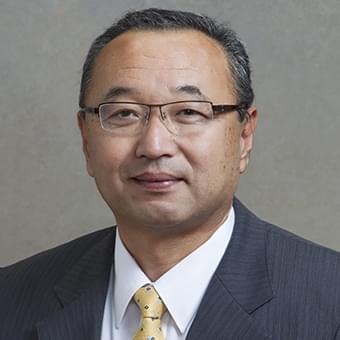
WATANABE Ryugo
Mayor of Sado City
Mr. Watanabe had been involved, as a Sado City official, in policy planning and implementation in various sectors such in agriculture, general policy, general affairs, hospitals and education. In particular, he established the "Toki Brand Rice Certification Initiative” in 2008, has been involved in projects to return Japanese crested ibis (Toki) to the wild, as well as branding of Sado rice and building its sales network. He also contributed in designating Sado as one of Japan's first Globally Important Agricultural Heritage Systems (GIAHS) in 2011. After retiring from Sado City in 2019, he was involved in tourism as an officer of a private company and elected as the Mayor of Sado in April 2020.
Joint-Programme Director, City Taskforce, IGES
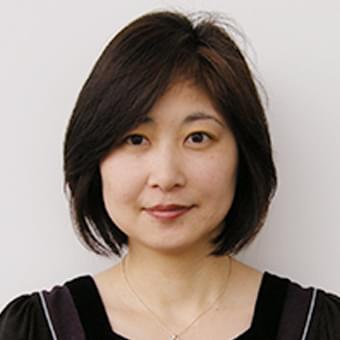
Yatsuka Kataoka
Joint-Programme Director, City Taskforce, IGES
After engaged in environmental technology transfer and capacity building projects targeted at the Southeast Asian countries in Global Environment Centre Foundation (GEC), Ms. Kataoka joined IGES in 2001. At IGES, she worked for water management related research projects, especially focusing on groundwater management policy and water quality management in Asian countries. After serving the senior coordinator for networking and outreach at Programme Management Office from April 2013 to March 2015, she was assigned as the Deputy Director of Kitakyusyu Urban Centre. She obtained LLM, Graduate School of International Cooperation Studies of Kobe University.
Executive Director, START

Jon Padgham
Executive Director, START
Dr. Jon Padgham is the Executive Director of START. Over the past 12 years at START, Dr. Padgham has led or co-led several science capacity development projects in Africa and Asia that engaged early career researchers. His work helped strengthen analytical skills for applying climate model projections to adaptation decision making and helped advance understanding of climate change adaptation in drylands and of urban food systems. His experience in capacity development includes scientific writing, science communication across disciplines, persuasive communications of science to policy and other stakeholder communities, research and assessment methods, building links to global science assessments, and building mentorship bridges between junior and senior academics. Dr. Padgham holds a PhD in Soil Science from Cornell University in the US.
Director, Office for Policy Planning and Coordination, Environmental Strategy Division/Deputy Director, Office for Regional Circulating and Ecological Sphere/Deputy Director, Biodiversity Policy Division, Nature Conservation Bureau, Ministry of the Environment of Japan (MOEJ)
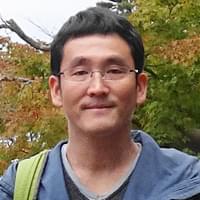
SASAKI Shinjiro
Director, Office for Policy Planning and Coordination, Environmental Strategy Division/Deputy Director, Office for Regional Circulating and Ecological Sphere/Deputy Director, Biodiversity Policy Division, Nature Conservation Bureau, Ministry of the Environment of Japan (MOEJ)
As a staff of the Ministry of the Environment, he has been in charge of conservation and management of national parks and world natural heritage sites, and rare wildlife preservation. After the Great East Japan Earthquake, he was involved in developing the Michinoku Coastal Trail as a part of "Green Reconstruction Project" which aim to contribute to reconstruction by making the most of the natural environment. He worked on site for management of the Aso Kuju National Park and protection propagation program for Tsushima leopard cats in Tsushima, Nagasaki Prefecture. From 2017 to 2019, he was in charge of the construction of the Varve Museum, the reintroduction of the oriental white stork and the nature restoration project as the chief of the Fukui Prefecture Natural Environment Division. He is serving as a current position since July 2020.
Director, Office of Global Environment and Decarbonizing Innovation Research, Global Environment Bureau, Ministry of the Environment of Japan (MOEJ)

NAKAJIMA Eri
Director, Office of Global Environment and Decarbonizing Innovation Research, Global Environment Bureau, Ministry of the Environment of Japan (MOEJ)
Eri Nakajima entered the Ministry of the Environment in 1995, and was involved in water environment administration and drafting environmental white papers.
Studied abroad in 1999, graduated the master’s program at the Department of Land Economy, University of Cambridge in 2000 and graduated from the master’s program at the Department of Environmental Change and Management, University of Oxford in 2001.
She returned to the Ministry of the Environment in 2001, and was involved in in climate change policy, international environmental administration, then was seconded to New and Renewable Energy Division, Agency for Natural Resources and Energy, Ministry of the Economy and Industry in 2003.
She has been engaging in an agricultural, self-build, and environmentally friendly lifestyle utilizing natural energy while living a double-region lifestyle in Fujimi-town in Nagano and Tokyo.
She has been involved in water environment administration at the Ministry of the Environment since 2005, then was seconded as the chief of the Climate Change Policy Division, Environment Department, Nagano Prefecture. After that, she returned to the Ministry of the Environment, then served as the Vice Governor of Nagano Prefecture from 2015 to 2019. She is serving as a current position since August 2020
Assistant Professor, Department of Architecture and Planning, Visvesvaraya National Institute of Technology
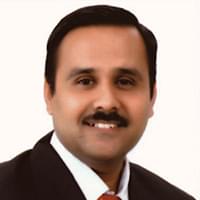
Sameer Deshkar
Assistant Professor, Department of Architecture and Planning, Visvesvaraya National Institute of Technology
Dr. Sameer Deshkar is an Architect and Environmental Planner working with a focus on mainstreaming community resilience into development planning. He has a work experience of 18 years in research & academics. Dr. Sameer has spent formative years in his research career at Nagoya University, Japan during 2009-11 during which he received prestigious Govt. of Japan MEXT fellowship. He was awarded Ph.D. in 2014 from VNIT, Nagpur with his research focusing on Urban Disaster Risk Resilience.
Currently, Dr. Deshkar is serving as Assistant Professor at the Department of Architecture and Planning of Visvesvaraya National Institute of Technology (VNIT), Nagpur where he is also leading the IRDR International Center of Excellence in Resilient Communities & Settlements as Executive Director. He is a professional trainer on disaster management and has conducted several workshops for municipal administrators, academic circles as well as at community levels. Dr. Deshkar has also been involved in rural development through innovations programmes such as Unnat Bharat Abhiyan, a flagship programme of Government of India where he is coordinating various initiatives at VNIT, Nagpur. Having a strong focus on addressing rural vulnerabilities and a valuable experience of working with tribal communities in Central Indian forest regions, he has been part of key committees with Maharashtra State Government agencies involved with rural livelihood development.
Dr. Deshkar is involved in various Nationally and Internationally funded research and capacity building projects on climate change adaptation and risk resilience. He is closely associated with Keio University, Fujisawa, Japan and Institute for Global Environmental Strategies (IGES) ,Hayama, Japan for various collaborative research projects as well as with Aichi Gakuin University, Nagoya, Japan where he regularly delivers invited guest lectures in Policy Studies. His recent research projects have been focusing on evaluating community risk perceptions, understanding human-nature interactions in rural settlements, promoting nature-based solutions for climate change adaptation & risk reduction and developing framework for collective resilience of urban & rural regions in India. Under the Indo-Japan bilateral project grants, he has been instrumental in establishing a unique Urban-Rural partnership for natural resource conservation involving local municipal administration, rural ‘panchayat’ and the village communities in the Nagpur Metropolitan Region.
Dr. Deshkar is also acknowledged as IRDR Young Scientist Fellow. He has to his credit many papers published in conference proceedings and reputed peer reviewed journals and book chapters mainly focusing on disaster risk resilience of urban and rural regions in India.
Manager, Co-Governance and Creation Division, Policy Bureau, City of Yokohama
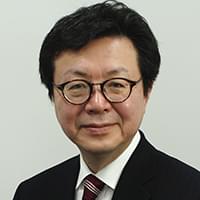
SEKIGUCHI Masayuki
Manager, Co-Governance and Creation Division, Policy Bureau, City of Yokohama
Entered Yokohama City in 1988. Involved in editing and publishing a policy information magazines of Yokohama City, such as the quarterly survey report and the White Paper on Citizen's Life. Since 2002, he has been in charge of comprehensive policy making for the entire city at the City Management Bureau, and has been involved in developing a policy guidelines and long-term visions for civic collaboration and society with declining population. He was transferred to the Planning and Coordination Division of the Child and Youth Bureau when it was established in 2006. He was in charge of managing a study group to build a youth independence support program, while conducting a fact-finding survey of young people who had difficulties such as antisocial and unemployment. Since 2008, as the chief of the Youth Development Division of the same bureau, he has planned and developed a project to support the development of children and young people with difficulties.
Since 2012, He has been promoting the utilization of open data for "Realization of citizen-participatory problem solving" and "The regional economy revitalization." in the Yokohama City Policy Bureau Policy Support Centre. He created a mechanism of open innovation that visualizes social issues and market needs, and industry-government-academia-private actively participate and collaborate to solve the issues by mashing up the data held by the government and the information held by the private sector such as NPOs and companies. Currently, he is involved in promoting open innovation initiatives in the fields of child-rearing and elderly care as well as developing living labs throughout the city as a local platform for citizens, governments, and companies to co-creatively solve regional issues and create businesses in Co-Governance and Creation Division, Policy Bureau of the City of Yokohama.
Co-author: "Young Poverty, Whereabouts, Second Chance" (Taro Jirosha Editors)
"A future in which all young people can live-against exclusion from family, education and work"(Iwanami Shoten)
"Changing society by supporting people in need" (Law Culture Company)
Assistant manager, Environmental Policy Division, Kumamoto Prefecture

Taeko Yanabe
Assistant manager, Environmental Policy Division, Kumamoto Prefecture
After joining Kumamoto Prefecture, Ms. Yanabe has been engaged in child welfare, finance, regional revitalization/tourism promotion, and welfare for the elderly. She also engaged in the formulation of "Kumamoto's Dream Four-Year Strategy" at the General Policy Bureau in 2008 under the first term of Governor Kabashima. After experiencing the Kumamoto earthquake in 2016, she worked on the development a new tourism strategy aiming for reconstruction in tourism sector including inbound tourism, based on the experts’ discussion at the "Kumamoto Tourism Reconstruction Conference". Since April 2020, she has been in charge of environmental policy development such as the Kumamoto Prefecture's Basic Environmental Guidelines and Basic Environmental Plan and measures against global warming and for groundwater conservation at the Department of Environment and Residential Life. Since April 2020, she lived within the Aso-Kuju National Park when her family transferred. She is demonstrating measures to mitigate global warming in daily life, such as local production and consumption of food including groundwater that is a treasure of Kumamoto and food product made with local groundwater such as Japanese sake rice, vegetables, Akaushi (Japanese brown cattle).
Senior Policy Researcher, Natural Resources and Ecosystem Services, IGES
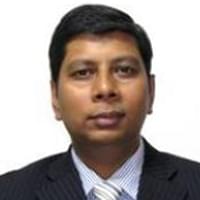
Bijon Kumer Mitra
Senior Policy Researcher, Natural Resources and Ecosystem Services, IGES
Bijon Kumer MITRA works as Water Resource Specialist with Institute for Global Environmental Strategies in Japan since 2009. He is having more than seven years of experience in the field of water resource management. His current research topics include inter linkage nature of water-energy-food-climate, climate change adaptation in water, groundwater governance and emerging water quality issues in Asia and Pacific. Mitra holds a PhD degree in Science of Biotic Environment from Iwate University, Japan.
Head of Thammasat University Research Unit in Urban Futures and Policy

Wijitbusaba Ann Marome
Head of Thammasat University Research Unit in Urban Futures and Policy
She is a Head of Thammasat University Research Unit in Urban Futures and Policy and teaches urban policy and planning at the Faculty of Architecture and Planning of Thammasat University in Thailand in which, through her researches, she takes urban development planning approach to the understanding of climate change adaptation and urban resilience and sustainability. She led local team for various international research collaborations such as Coastal Cities at Risk (CCaR), Urban Resilience Planning and Adaptive Urban Governance and Planning for Eco-cities and Climate-resilient Environments: building capacity for inclusive planning in the Bangkok Metropolitan Region. She was also one of the authors for UNISDR’s Global Assessment Report 2013 and The First and The Second Thailand Assessment Report on Climate Change.